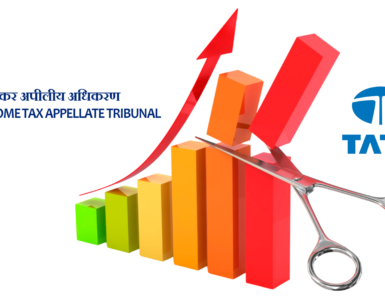In one of our previous articles, we had covered the provisions in the Companies Act which provide mandatory and voluntary ways exit can be given to minority shareholders of unlisted and listed companies. In this, we revisit applicable sections which are updated recently.
As on date, it was difficult for majority shareholders to acquire all or some of the minority shareholders, as relevant sub-sections (11) and (12) of section 230 of the Companies Act 2013 were not notified till recently on February 3, 2020. Along with the notification, the following rules were also amended to effectively facilitate and execute takeover offer.
- The Companies (Compromises, Arrangements and Amalgamations) Rules, 2016(“Rules”) in order to implement the enforcement of Section 230 (11) of the Act;
- The National Company Law Tribunal Rules, 2016 (“NCLT Rules”) in order to implement the enforcement of Section 230 (12) of the Act.
The notification contains framework facilitating members of Unlisted Companies to make an offer for takeover by making an Application to National Company Law Tribunal (“NCLT”).
SECTION 230 (11) AND COMPANIES (COMPROMISES, ARRANGEMENTS AND AMALGAMATIONS) AMENDMENT RULES, 2020:
Section 230 (11) of the Act provides that in case of unlisted companies, any compromise or arrangement may include takeover offer in compliance of the prescribed Rules. As we know in the case of listed companies, takeover offers shall be as per the SEBI Takeover Regulations.
As per the rule 3(5), any shareholder along with other shareholders holding together at least 75% of the shares (“The Applicant”) in the company can initiate an arrangement for acquiring the shares of the remaining shareholders of the company as part of the scheme u/s 230 of the Act. Here, shares mean the equity shares of the company carrying voting rights and include any securities which entitle the holder to exercise voting rights. This is obvious as there are separate provisions under the Act for redemption of preferences hares
While making an application for the arrangement for the purpose of takeover offer to the NCLT u/s 230 (11) of the Act, the Applicant must comply with compliances as mentioned in Section 230 and in other sub-clauses of Rule 3 of the Rules and in addition as per the new sub-rule (5) inserted in Rule 3, the application must contain:
- Report of the registered valuer disclosing the details of the valuation of the shares proposed to be acquired by the member;
- Details of the bank account opened separately by the member where not less than one-half of the total consideration of the takeover offer is deposited.
The registered valuer must consider the following factors while issuing report:
- The highest price paid by any person or group of persons for the acquisition of shares during last twelve months;
- The fair price of shares of the company to be determined by the registered valuer after taking into account valuation parameters including return on net worth, book value of shares, earning per share, price earning multiple vis-à-vis the industry average, and any other customary valuation parameters for such companies.
The 75% shareholders cannot go under the provisions for the purpose of takeover offer to minority shareholders in case of the following circumstances:
- Transfer or transmission of shares pursuant to a contract or arrangement.
- Transfer pursuant to any statutory or regulatory requirement.
- Transmission of shares pursuant to succession
The clear necessity and intention behind these exceptions is not clear as the same being obvious, by the majority shareholders should have its proper due diligence to avoid any of such conflicts.
SECTION 230 (12) AND NATIONAL COMPANY LAW TRIBUNAL (AMENDMENT) RULES, 2020:
Section 230 (12) of the CA, 2013 read with the new rule 80A (Application under Section 230) allows minority shareholder to make an application to the NCLT in the event of any grievances with respect to the takeover offer of companies in form NCLT-1 along with prescribed annexures viz. Affidavit verifying the petition, Memorandum of appearance, with a copy of the Board’s Resolution or the executed vakalatnama, as the case may be, documents in support of the grievances against the takeover, any other relevant document on payment of a filing fee of Rs 5,000 for making any such application.
It is further clarified that the provisions of section 66 shall not apply to the reduction of share capital effected in pursuance of the order of the Tribunal under this section. There is flexibility for the Applicant regarding the number of additional shares that he can acquire as well as the minority shareholders from whom the additional shares can be acquired. The rules are silent as to whether the offer must be made to all minority shareholders and whether it has to be on a proportionate basis or not. Hence, going forward, a selective minority squeeze-out can be attempted under the new Rules. The scenario of selective capital reduction which were challenged before the NCLT in various cases viz. Cadbury India Limited (2014 SCC Online Bom 4934); Sandvik Asia Limited Vs. Bharat Kumar Padamsi and Others.; Jayshree Damani & Anr. Vs. Atlas Copco (India) Ltd may be avoided by going under this newly notified provision.
The said notification has paved a way to the majority shareholders of unlisted companies facing issues from minority shareholders to take management decisions to buy out their shareholding by making an application to NCLT and such shares can be bought at a price fixed by the registered valuer. This might compel the minority shareholders to forcibly move out and at the same time the minority shareholders are given protection to object any such takeover offers by making an application to NCLT only from the point of view of valuation
PROCEDURE AND OBLIGATIONS ON THE APPLICANT IN CASE OF TAKEOVER OFFER BY UNLISTED COMPANY
Points to be considered while applying with NCLT:
- Application in Form NCLT – 1 along with a notice of admission in Form No. NCLT – 2; an Affidavit in Form NCLT – 6, scheme of takeover offer, prescribed fees of Rs. 5,000/-, report of a registered valuer disclosing the details of the valuation of the shares proposed to be acquired by the member; details of bank account, to be opened separately;
- Proofs that member/members making application hold at least 75% of paid-up equity share capital;
- A copy of the notice of admission and of the affidavit shall be served on the company;
The Applicant must specify the details of the shareholders and number of shares he wishes to acquire in the takeover offer and ensure that the shares he wishes to acquire is free from all liens, charges and encumbrances. The Applicant must ensure that financial arrangements have been made for fulfilling the payment obligations as per the takeover offer. They must ensure that all the Applicants are joint of NCLT convened meeting severally responsible for fulfillment of takeover offer obligations.
The Applicant has to request the Board of Directors of the Company to provide information as may be required by the Registered Valuer for arriving at a fair price.
COMPLIANCES PROVIDED IN SECTION 230 OF CA, 2013
The section with rules prescribes various compliances which though may be very critical and important in other types of schemes, we believe it may not be relevant for the Scheme u/s 230(11).
We list down various such requirements:
- 230(3)–Notice of NCLT convened meeting to be issued to creditors/class of creditors or shareholders/class of shareholders, as applicable in compliance with Rule 6 (Notice of the meeting); Publication of Newspaper Advertisement in compliance with Rule 7 (Advertisement of the notice of the meeting) and as directed by NCLT order;
- 230(4)– Provision for voting in the meeting either themselves or through proxies or by postal ballot in compliance with Rule 9 (Voting) and Rule 10 (Proxies);
- 230(5)– Copy of scheme of arrangement and notice u/s 230(3) to be served to sectoral regulators/authorities in compliance with Rule 8 (Notice to statutory authorities) and as specified in the NCLT order;
- 230(6)– Approval of a majority of persons representing 3/4th in value of creditors/class of creditors or members/class of members in the NCLT court convened meeting as the case may be, voting in person or by proxy or by postal ballot;
- Rule 12 (Affidavit of service) –Affidavit to be filed by the Chairperson appointed for the NCLT convened meeting before the NCLT not less than seven days before the date fixed for meeting;
- Rule 13 (Result of the meeting to be decided by voting)–The report of the result of the meeting to be in the format as prescribed and state accurately the number of creditors or class of creditors, as the case may be, who were present and who voted at the meeting either in person or by proxy, and where applicable, who voted through electronic means, their individual values and the way they voted;
- Rule 14 (Report of the result of the meeting by chairperson)–The report of the result of the meeting to be submitted to NCLT within the time fixed by the tribunal, or within three days after the conclusion of the meeting;
- Rule 15 (Petition for confirming compromise or arrangement) –The Company shall within 7 days of the filing of the report by the chairperson, submit a petition to the NCLT as prescribed for sanction of the scheme of compromise or arrangement
- 230(8)– Filing of NCLT final order by the company within 30 days of receipt of order read with Rule 17 (Order on petition).
- 230(9)-Approval from at least 90% of shareholder and creditors of applicant companies will enable the companies to get dispensation from the NCLT convened meeting
- Approval from Regional Director (RD) & Official Liquidator (OL) (in cases of Merger for Transferor Company) is required for completion of Scheme.
COMPARISION OF SEBI (SUBSTANTIAL ACQUSITION AND TAKEOVER REGULATIONS), 2015 (‘SAST’) WITH TAKEOVER OFFER UNDER SEC 230(11) AND 230(12) READ WITH RULES:
| SAST | TAKEOVER OFFER BY UNLISTED COMPANIES |
| Regulation 27 – Provision for Obligations of Merchant Banker | There are no such provisions for appointment of Merchant Banker and obligations in similar manner. Here, in this case as there is no provision for appointment of the Merchant Banker, the Applicant shall be held responsible if there is any failure in compliance as provided. |
Regulation 17 – Provision of Escrow
| Rule 3(6) state that 50% of the consideration needs to be deposited in a separate bank account at the time of making the application. However, no proper clarification is given on what all provisions may be applicable to that account opened as provided in R.17 of SAST. The Applicant may refer the provisions as provided in SAST in case of any clarification in the process required. Also, as there is no prescribed time within which NCLT shall pass an order to approve any such arrangement, the money would get blocked till the time NCLT approves such takeover arrangement. |
| Steps under SAST provides for filing of Draft Letter of Offer (DLO) with SEBI for its comment. Changes to be made to the DLO based on comments received from SEBI. Dispatch of the Final Letter of Offer to all shareholders of Target company, whose names appear on its register of members on the Identified Date. | The Applicant must make an application for the takeover offer with NCLT (Adjudicating Authority) and should attach copy of any public announcement, detailed public statement and/or letter of offer published or sent to minority shareholders. The Applicant will only be able to revise its offer after receiving directions/recommendations from NCLT post Application hearing. |
OTHER WAYS AVAILABLE FOR EXIT OF MINORITY SHAREHOLDERS UNDER COMPANIES ACT, 2013:
Sec 236 of the Act provides for exit to the minority shareholders in case of Acquisition, provided The Acquirer along with Person Acting in Concert holds more than 90%. This provision does not envisage application to NCLT, though it also requires obtaining valuation report to determine the price payable to minority shareholders.
Thus, remedy under Sec 230(11) and Sec 236 is initiated by Majority shareholders and minority shareholders are paid by majority shareholders and not by the company.
Sec 66 provides for the reduction of the capital and considered and invoked to give selective exit to the minority shareholders, though in our opinion, the section is meant for the specific purposes mentioned and not give selective exit to minority shareholders. No doubt under the section, it is the company who makes application to NCLT and make payment to minority shareholders and cancel those shares AND majority shareholders are not out of pocket, though no doubt the company is acting for and on behalf of majority shareholders and probably benefit them without any cash-out flow to acquire full control our the company.
The buyback of shares under Sec 68 also is one of the option to provide an exit to minority shareholders, but most important as against reduction of capital, it is optional and not compulsory and as in case of reduction of Capital, in this option also the company is acting and it makes payment to the shareholders who opt for the buyback offer. Please also note that there are separate guidelines which need to be followed to go through the buyback offer and not only that in case of the buyback offer, one cannot give complete exit to minority shareholders.
Conclusion
The new provisions are win-win for majority shareholders to acquire full control over the company and its business by paying fair value to minority shareholders and minority shareholders getting a fair chance to present his case in terms of consideration payable to them for exit. However, it happens in many cases, the minority shareholders are not given any return for years to gather and also not provided exit so in such cases, minority shareholders under the section should have been given rights under the section to move NCLT and compel majority shareholders to give fair value of their shares and exit.





Add comment